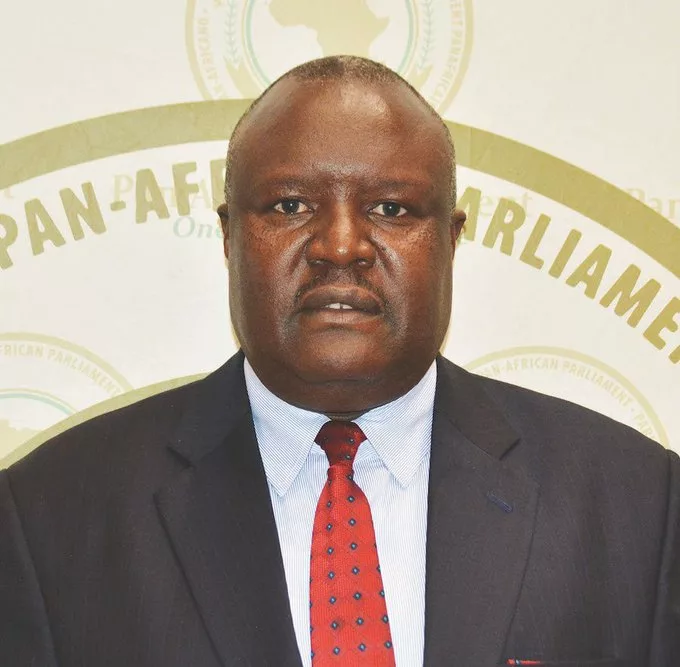|
Getting your Trinity Audio player ready...
|
Chief Fortune Zephania Charumbira, the President of the Pan African Parliament is leading a delegation of the continental legislative body at the Euro-Africa International Conference on Migration where he recounted his experience of the harsh reality of the impact of illegal migration and its dire consequences and offered a raft of recommendations to counter the global challenge.
The conference is taking place in Benghazi, Libya, from 25 -27 May 2024 and the choice of the venue is apt in that it brings to the fore the challenges that Libya has faced with illegal migrants crossing into Italy and Malta.
Chief Charumbira told the gathering that in almost every country in which the PAP delegation transited on its way there, they were repeatedly asked for the “Approval to Board” that ought to have come from the Libyan authorities.
“In both Addis Ababa and Cairo, we were prevented from boarding the flights until the airlines received the “Approval to Board” from the Government of Libya. Amidst the frustrations and the delays, it dawned on me that I was witnessing first-hand the harsh reality of the impact of illegal migration, even on those with legitimate businesses in Libya. I was witnessing close-up some of the efforts put in place by Libya in collaboration with sister countries, to ensure that everyone who comes to Libya has a legitimate reason for doing so, has been granted approval by the Libyan government, and even has a return ticket to go back to where they are coming from,” he said.
Chief Charumbira said the strict restrictions on migration come in the wake of the International Organisation for Migration’s discovery of at least 65 migrant bodies in a mass grave in Southwestern Libya, believed to have died during smuggling operations.
The horrendous discovery, he said, was made in the Wadi Al-Jahriya area about 421 kilometres south of Tripoli and justifies authorities’ control measures given the fact that, until recently, Libya was the main departure point for migration towards Europe. Tunisia has since overtaken Libya and accounts for more than 62% of the more than 150,000 people who crossed the Central Mediterranean in precarious boats in 2023.
These precautionary measures are also appreciable given that the Central Mediterranean Route (the route from Algeria, Egypt, Libya, and Tunisia to Italy and Malta) has recorded at least 3 129 deaths and disappearances in 2023, highlighting it as the “most deadly migration route”.
“It is, therefore, befitting that a conference of this nature that seeks to find durable solutions to the challenges of migration is being held in one of the migration hubs of Northern Africa. I must also commend the Libyan Government for bringing together both Europe and Africa to jointly find win-win solutions to a growing challenge that is affecting both continents. It behooves us, therefore, to institute mutually beneficial migration management policies and programmes between the two continents,” HE Charumbira said.






